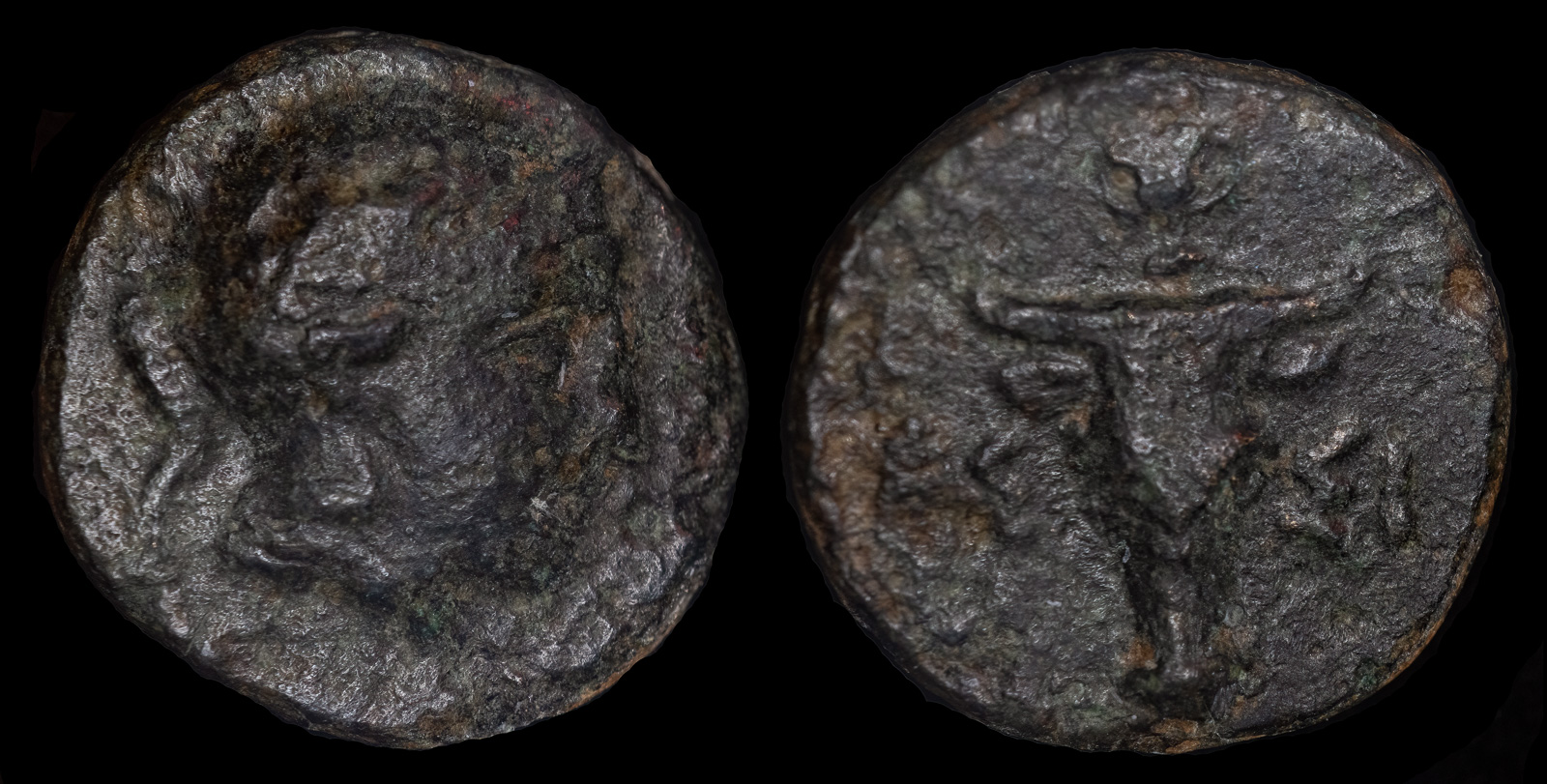
Troas, Assos
ca 400-241 BCE
AE 10mm 1.2g
Ox: Head of Athena right, in crested Attic helmet
Rx: AS-SI around Bucranium; two handled vase above
SNG Copenhagen 243 var. (symbol on reverse); BMC Troas pg. 37, 8; SNG von Aulock 1496; Laffaille –
Today, Assos is a holiday resort that offers coast and ruins in Turkey. In ancient times, Assos was among the most important cities in the Troad because it offered the only good harbor. Around the time of Philip II, it was ruled by Hermias, who had originally been a slave in Atarneos, but had purchased his freedom.
He later took control of Atarneos, then expanded his influence to other cities, such as Assos. In the spirit of enlightenment, he invited many philosophers to live in the cities, and the most prominent of those who took up the offer was Aristotle. Aristotle eventually married one of Hermias’ daughters.
Unfortunately, Hermias wasn’t a very smart man, and he was eventually lured from the city by Memnon of Rhodes, then jailed and tortured to death. Feeling that the mood had darkened, Aristotle fled the city and moved to Macedonia, where he tutored in Philip II’s court. Many believe that he taught Alexander the Great himself, though there is no definitive proof of this, though they certainly must have known each other.
Much of the city remains preserved and can be visited today, including several columns of the Temple of Athena, who is pictured on the obverse of this coin.

Assos, Troas
ca. 350 – 300 BCE
Ae 10.5mm, 1.0gms
Obv: Head of Athena right wearing crested Attic helmet decorated with olive wreath
Rev: AS-SI to either side of bucranium; head of lion right above
Ref: SNG von Aulock 1495 var. (kerykeion)
900 BCE
Assos founded by Aeolian colonists from Lesbos.
Doric temple to Athena constructed at Assos.
Autophradates lay siege to Ariobarzanes in Assos. In exchange for Athenian support, Ariobarzanes gifts them Sestos.
Aristotle moves to Assos and marries the niece of its ruler Hermeias, Pythia.
The Persians are driven out of Assos and Ephesos by Alexander the Great.
Assos comes under the control of the Attalid Kingdom.
Adramytteion, Smyrna, Sestos, Synnada, Philadelphia, Laodikeia ad Lykon, Attalaia, Erythrai, Ephesos, Perge, and Assos come under Roman control after Attalos III, the last Attalid king, leaves it to Rome in his will.
Assos is visited by the Apostle Paul.